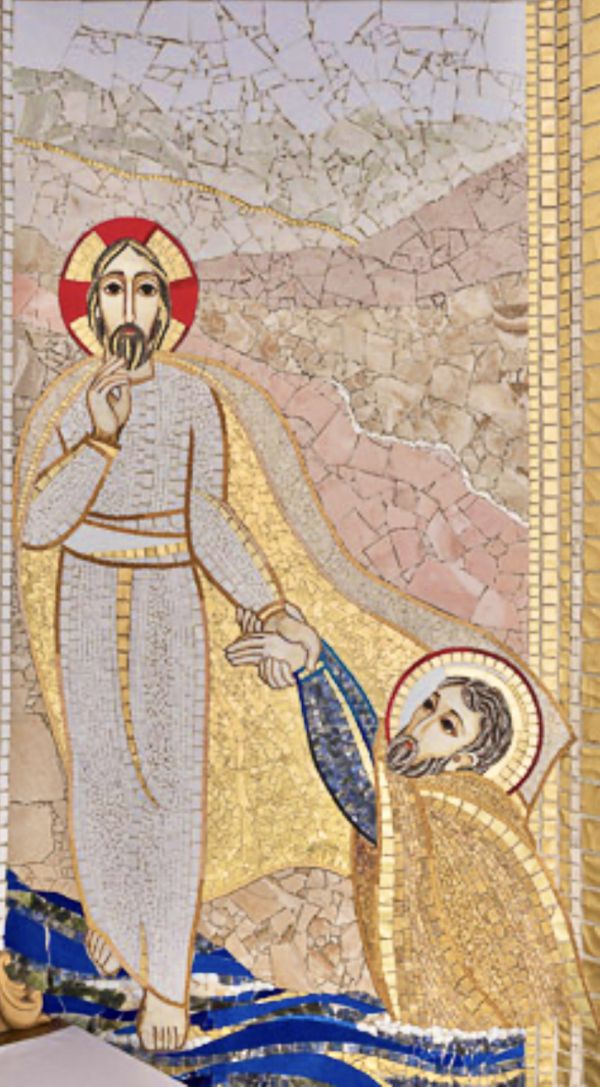The difficult condition of the disciple in the Church and the world
(Mt 14:22-36)
Having reached the ultimate condition (v.23) Jesus does not allow the Apostles to keep the treasures of God for themselves.
He compels his own to the mission to the Gentiles (v.22). But the 'headwinds' were many.
About half a century after the Lord's death, the communities of Galilee and Syria faced a difficult crossing.
The securities of the ancient religion and the sense of rootedness in the customs of the “chosen” people were breaking down. Even small privileges of position were crumbling.
With the increasing entry of pagans into communities, third-generation believers were forced to ask themselves how they could break out of their old cultural isolation and open up to a new way of seeing things.
In addition to the persecutions, internal conflicts intensified: for example, over the position to be taken in relation to the Empire itself.
There was no shortage of heated debates on the figure and history of the Master himself - as well as on the attitude to take towards the tradition of the 'fathers' [which to some seemed a call to turn back].
Even though the situation was fraught with friction, bitterness, and rancour between Judaizers and those from paganism, as well as impetuous dangers, the Glad Tidings of unconditional Salvation could not be kept in an inner circle.
The quotation of the divine Name «I Am» (v.27) refers here to the Exodus story (3:14).
It is a reminder to the disciples. They still seemed to be in the grip of immediate fears about the real power of Life and Deliverance of Christ - so much so that they did not recognize Him (v.26).
Without ceasing, the Risen One still makes himself Present, so that we can open up and move forward; without the burden of opposition or nostalgia. There is a whole new reality waiting.
We are inhabited by the power of God (vv.28-31).
Authentic communities - «flap of his cloak» (v.36) that is of his Person - will still experience the power of the Spirit.
Through evangelization and the new way of living and helping others gratuitously, any storms that may be gathering on the horizon will clear up.
It will be replaced by an ever deeper and more acute experience of the burgeoning diversity of the 'other shore'; of one's neighbour, of oneself, of the life to come, and of God.
But the virtue that dominates the elements cannot be experienced as Peter intended, that is, as an external, immediate, decisive, and final power - but rather as mysterious and inner, animated in time, and of profound relationship.
The “victory” will be the result of Faith alone: trust in the strength that the silent Messiah gives.
Potency far greater than what we already know about ourselves - despite the fact that we often (like Simone) pretend to an easier, quicker, immediately decisive shortcut.
Emotionally relevant situations have their own meaning, they carry a significant appeal; they introduce a different introspection, the decisive change - a new 'genesis'.
Trial in fact activates souls in the most effective way, because it disengages us from the idea of stability, and brings us into contact with dormant energies, initiating the new dialogue with events.
In Him, we are therefore imbued with a different vision of danger.
[Monday 18th wk. in O.T. (year A)]
[Tuesday 18th wk. in O.T. (year B-C), August 5, 2025]


